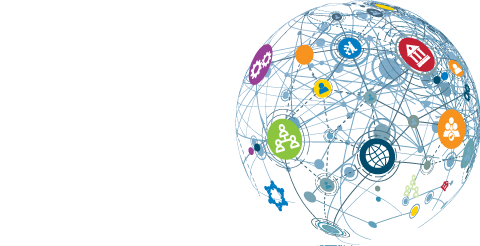
The UNESCO-UNEVOC International Centre: Who We Are | What We Do | Working With Us | Get in Touch
The UNEVOC Network: Learn About the Network | UNEVOC Network Directory
For Members: UNEVOC Centre Dashboard
Thematic Areas: Inclusion and Youth | Digital Transformation | Private Sector Engagement | SDGs and Greening TVET
Our Key Programmes & Projects: BILT: Bridging Innovation and Learning in TVET | Building TVET resilience | TVET Leadership Programme | WYSD: World Youth Skills Day
Past Activities: COVID-19 response | i-hubs project | TVET Global Forums | Virtual Conferences | YEM Knowledge Portal
Our Services & Resources: Publications | TVET Forum | TVET Country Profiles | TVETipedia Glossary | Innovative and Promising Practices | Toolkits for TVET Providers | Entrepreneurial Learning Guide
Events: Major TVET Events | UNEVOC Network News
 |  |
Dear readers,
Over the past few months, people around the world have shown solidarity in the midst of the COVID-19 crisis and reinforced how global cooperation is needed to build a better future. Technical and vocational education and training (TVET) institutions have stepped up to serve their communities by sewing medical masks, producing personal protective equipment and providing support to frontline workers. As countries begin to emerge from the global COVID-19 crisis, there will be a focus on economic recovery and providing viable solutions for those impacted by workforce displacement. This new reality will see TVET institutions called upon to provide flexible, long-term learning solutions as well as reskilling and upskilling programmes to facilitate access to altered labour markets.
Prior to this crisis, young people were three times as likely as adults (25 years and older) to be unemployed![]() . Currently, more than 1 in 6 young people are out of work due to COVID-19
. Currently, more than 1 in 6 young people are out of work due to COVID-19![]() . For youth to become an integral part of the recovery effort, they will need the relevant skills to meet urgent labour market demands as well as the competencies to manage future disruptions. A key component in rebuilding successful post-COVID-19 societies and economies will be the provision of quality skills training and employment opportunities for all young people.
. For youth to become an integral part of the recovery effort, they will need the relevant skills to meet urgent labour market demands as well as the competencies to manage future disruptions. A key component in rebuilding successful post-COVID-19 societies and economies will be the provision of quality skills training and employment opportunities for all young people.
The importance of developing skilled youth is at the core of this year’s message for World Youth Skills Day. Several virtual events focused on the theme of “Skills for a Resilient Youth” have been organized to mark the occasion. From 6-14 July, UNESCO-UNEVOC is hosting a virtual conference on its TVeT Forum that examines the future of youth skills development. On 15 July, the Permanent Missions of Portugal and Sri Lanka to the United Nations, together with UNESCO, ILO and the Office of the Secretary General’s Envoy on Youth, are organizing a virtual event![]() to share insights on the youth skills that are needed to navigate the era of COVID-19 and beyond. UNESCO-UNEVOC invites all TVET stakeholders to participate in these virtual discussions and young people are particularly encouraged to share stories of how COVID-19 has impacted their skills development. Find out more about World Youth Skills Day activities here.
to share insights on the youth skills that are needed to navigate the era of COVID-19 and beyond. UNESCO-UNEVOC invites all TVET stakeholders to participate in these virtual discussions and young people are particularly encouraged to share stories of how COVID-19 has impacted their skills development. Find out more about World Youth Skills Day activities here.
Lastly, as the world looks towards the recovery phase, UNESCO has launched a global campaign urging societies not to forget the lessons learnt. By contemplating “The Next Normal”![]() , we have an opportunity to challenge our perception of normality and reflect on the future to come.
, we have an opportunity to challenge our perception of normality and reflect on the future to come.
Best wishes from the UNESCO-UNEVOC team
Inclusion and education: All means all
The 2020 Global Education Monitoring Report looks at social, economic and cultural mechanisms that discriminate against disadvantaged children, youth and adults, keeping them out of education or marginalized in it. Spurred by their commitment to fulf ...
Discussion paper
In recent decades, countries across the Global South have set themselves the agenda of expanding their capacity for technical and vocational education and training (TVET). Yet, while the need to provide high quality TVET programmes for the industrial ...
Subscribe here: https://unevoc.unesco.org/home/register